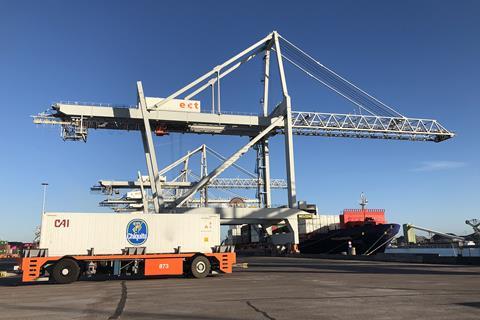Roll-out of new Secure Chain process is designed to improve security in place of the port’s previous PIN-based container entry method

The port of Rotterdam says it has handled more than half a million containers of imported goods using its anti-fraud system Secure Chain.
Since its introduction in early April for goods out of Latin America, and the start of July for North America, the new operational approach has become standard practice for containers from those origins, the port said.
The system’s introduction for container cargo from Africa, the Middle East, India and Pakistan is due on 1 October.
“Using this approach, the current milestone of 500,000 containers was reached in just over ten months,” a spokeperson for the port said.
“Ultimately, all deepsea import containers in the port of Rotterdam will be securely and reliably handled via the Secure Chain.”
WIth Secure Chain, the shipping line, shipper, forwarder and carrier pass on a container’s collection rights to each other digitally.
This creates a closed logistics chain which solely comprises familiar, authorised parties, who exchange any necessary information with one another securely via a community system called Portbase.
Only a haulier, barge operator or rail operator that has been authorised via the Secure Chain is able to access the terminal.
Previously, PIN codes were issued to open containers, but that method was open to abuse. A similar system was recently introduced at the Belgian ports of Antwerp and Zeebrugge.
All of the major container shipping lines and deepsea container terminals in Rotterdam now participate in Secure Chain.



